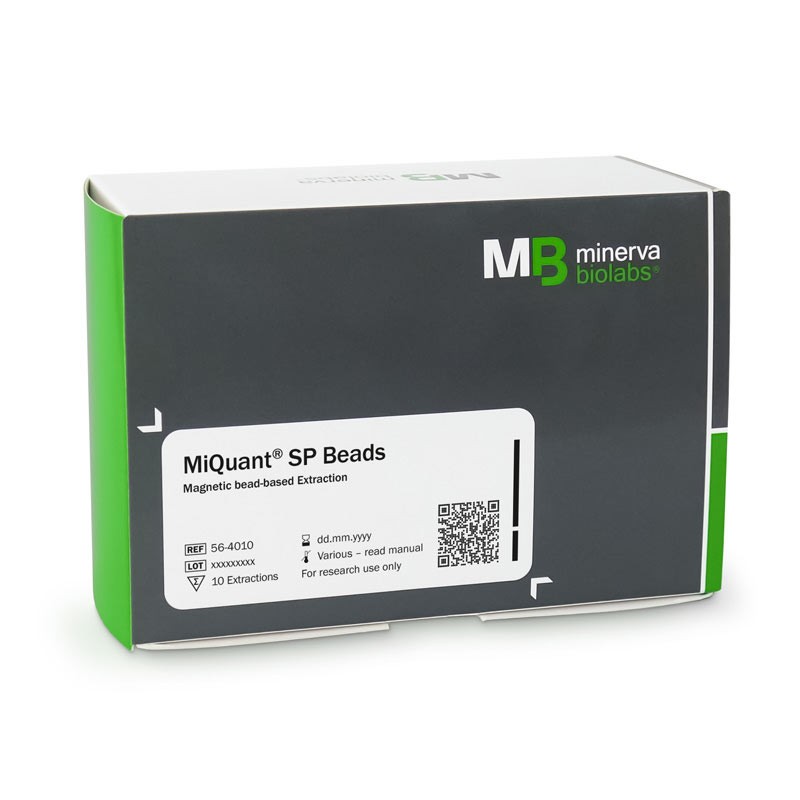MiQuant® SP Beads

The
MiQuant® SP Beads kit is a magnetic bead-based extraction kit and is
intended for the isolation of nucleic acids from transduced cells for
cell and gene therapy applications (e.g. CAR-T cell samples). A two-step
binding mechanism allows to remove impurities in the sample matrix in
combination with washing steps. Nucleic acids are eluted from the
magnetic beads using an elution buffer. Extraction process can be done
manually or automatically (e.g. with KingFisher™ Flex).
The MiQuant® SP Beads kit with its fast performance and high
extraction efficiency is adapted to our products of the MiQuant® series,
such as MiQuant® CAR-T Cell dPCR kits.
For the isolation of nucleic acids from transduced cells
- CAR-T cell samples
- Viral vector samples
Kit Components
- Binding, Elution, Lysis, Rehydration and Wash Buffers
- Magnetic Bead Suspension
- Proteinase K
Package Size
Cat. No. 56-4010: 10 extractions
Cat. No. 56-4100: 100 extractions
Required Consumables
- 1-propanol, ≥ 99,5 %, p.a.
- 1.5 ml or 2 ml RNase-free reaction tubes (preferably low-bind)
Required Lab Device
- Magnetic rack
- Thermoshaker
- Vortex mixer
- Optional: Automated extraction device (e.g. KingFisher™ Flex) with corresponding DNase- and RNase-free plastic ware
Shelf Life and Storage
Shipment and storage at ambient temperature. Proteinase K has to be
stored at 4 °C. The expiry date of the unopened package is marked on
the package label.
If you cannot find the answer to your problem then please contact us or telephone +44 (0)1954 210 200